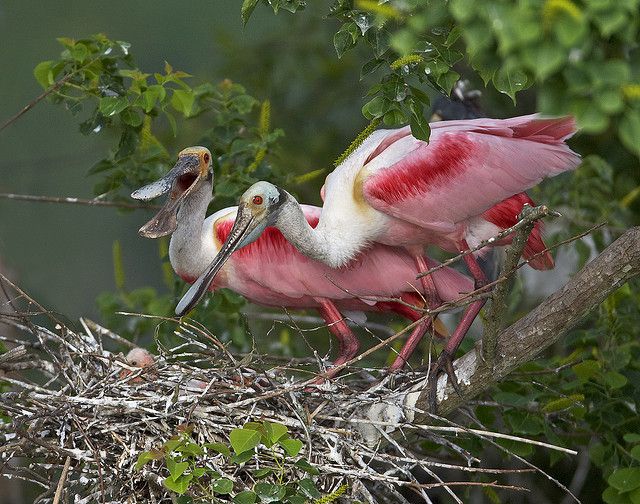
The roseate spoonbill (Platalea ajaja) is a gregarious wading bird of the ibis and spoonbill family, Threskiornithidae.
Very common in parts of the southeast until the 1860s, spoonbills were virtually eliminated from the United States as a side-effect of the destruction of wader colonies by plume hunters. Began to re-colonize Texas and Florida early in 20th century. Still uncommon and local, vulnerable to degradation of feeding and nesting habitats.
Feeding Behavior
Forages by wading in shallow muddy water, sweeping bill from side to side with mandibles slightly open, detecting prey by feel. Sometimes picks up items that it has found by sight.
Eggs
2-3, sometimes 1-5. White, spotted with brown. Incubation is by both sexes, 22-24 days. Young: Both parents feed young. Young clamber about near nest, may leave nest after 5-6 weeks, capable of strong flight at roughly 7-8 weeks.
Young
Both parents feed young. Young clamber about near nest, may leave nest after 5-6 weeks, capable of strong flight at roughly 7-8 weeks.
Advertisements
03 February 2022
Advertisements



